Why I grieve for Brazil
Who could remain unruffled in the face of the fires raging in the Amazon? My heart went out to Brazil as I watched that footage on television. I was equally distressed last year, when flames consumed that country’s oldest and most important historical and scientific museum.
A lot more connects me as a Goan to the vibrant South American nation, a cultural melting pot many times larger than my land.
The Goan connection
As a Goan, I grieve at the way things turned out for the Museu Nacional, Rio de Janeiro, on that fateful night of 2 September 2018. Founded in 1818, by king Dom João VI of Portugal, the museum housed precious collections of natural history and science built up over a couple of centuries. The edifice was earlier the home of the Portuguese royal family in exile (1808-1821), and thus had a close bond with Goa. Even after the Brazilian imperial family took over (1822-1889) Goa continued to enjoy relations with that country.
With the monarchy gone, the old royal museum moved into the palace. When I saw the blaze, I had a flashback of that king who had settled in his American colony following the Napoleonic invasions; of his young son, Dom Pedro IV (1798-1834), whose heart bled for Portugal; and, finally, of an eminent Goan, Bernardo Peres da Silva (1775-1844), who, as a friend of the latter, must have stepped into the palace several times to discuss the sad state of affairs in their tiny nation across the Atlantic.
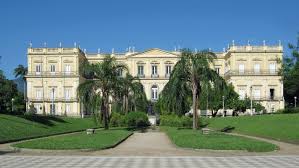
Peres da Silva belonged to the first batch of Goa’s deputies to the Portuguese Parliament. On his first two stints, he couldn’t take his seat for the Absolutists had dissolved the Cortes. In 1822, a circuitous trip via Mozambique and Rio de Janeiro, by force of circumstances, delayed his arrival in Lisbon. In 1827, he went on self-imposed exile to Plymouth (England) and sailed thence to Rio. He returned to Portugal only after Dom Pedro IV had reclaimed the crown from his younger brother Dom Miguel.
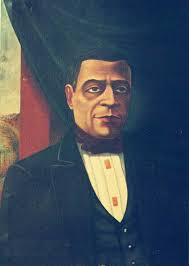
In Diálogo entre um doutor em philosophia e um portuguez da Índia (Rio de Janeiro: Tip. Nacional, 1832), the first-ever publication by a Goan in Brazil, Peres da Silva espoused the Liberal cause. He dedicated that political essay to the youth of Portuguese India. He was rewarded for his loyalty by being appointed Prefeito dos Estados da Índia. The response to his mixed bag of reforms in Goa was altogether another matter. A coup ousted the colony’s first and last native civil governor, who was indeed a unique gift from the Emperor of Brazil and Regent of Portugal, Dom Pedro IV, to Portuguese India.
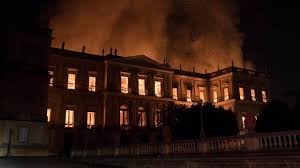 The human connection
The human connection
Well, a lot more connects me as a Goan to the vibrant South American nation, a cultural melting pot many times larger than my land. However, given that the house is presently on fire, I’d restrict myself to ecological parallels. For instance, the Western Ghats are to Goa what the Amazon is to Brazil: rainforests both, which together with their global counterparts fulfil forty per cent of the earth’s oxygen needs.
It is, then, as a human that I grieve for the inferno that set off in the Amazon on 23 August 2019. Representing over half of the planet's rainforests, it is the world’s largest and most bio-diverse tract of tropical jungle, with an estimated 390 billion individual trees divided into 16,000 species. The Amazon basin has an area of 7,000,000 km2, of which eighty per cent (5,500,000 km2) is wooded. Although its name is synonymous with Brazil, the Amazon does not belong to Brazil alone. It is perhaps less known that, while 58.4% of the rainforests are within the Brazilian borders, the rest is shared by eight countries: Peru (12.8%), Bolivia (7.7%), Colombia (7.1%), Venezuela (6.1%), Guyana (3.1%), Suriname (2.5%), French Guyana (1.4%), and Ecuador (1%).
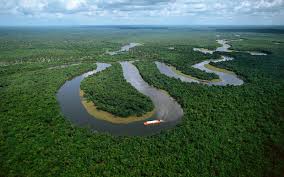
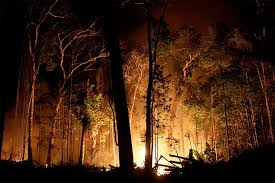
Out of those nine, only French Guyana is not an independent state but an overseas department and region of France. Bordering Brazil to the east and Suriname to the west, it is the only territory of the mainland Americas fully integrated in a European country. Hence, the Amazon’s well-being is the duty of France too. But alas, wildfires apart, deforestation for farming is one of the most serious threats to the woodlands – and, what’s more, all nine jurisdictions are guilty of the crime.
When I grieve for Brazil – the world in miniature – I also grieve for the world as a whole.
If so, why is Brazil alone under the scanner? Its main accuser, France, is at fault, too – in fact in Europe and America. It didn’t do enough for the Notre-Dame, one of the greatest specimens of world cultural heritage: the cathedral lost its roof, spires and more. Yet, the haughty French are shouting it from the rooftops that Brazil lacks commitment to the Paris Agreement. Clearly, while wildfires keep ravaging every forested region of France, French lessons in fire-fighting are just out of place!
Without exonerating Brazil’s acts of commission or omission, sources affirm that media coverage of the Amazonian fires has been misleading. It’s also difficult to believe La France. By her distinctive subtilité, she is known to skew public opinion, as she did, notoriously, in the then war against Iraq. Two centuries ago, an imperialistic France caused the Portuguese monarch to flee to Brazil. And now they’re questioning Brazil’s sovereignty over the rainforests! For sure, no country should take the high moral ground when they’re hiding charred skeletons in their cupboards.
Invaluable heritage
So, when I grieve for Brazil – the world in miniature – I also grieve for the world as a whole. I grieve for the intentional or unintentional pillage, be it cultural or environmental, of our global village. I finally remind myself that “playing with fire” is more than an idiomatic phrase; it’s indeed a sharp pointer to the invaluable, irreplaceable character of our shared, global heritage.
